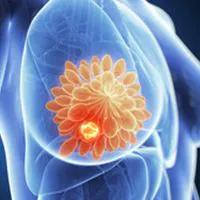
Dr. O’Shaughnessy on Adjuvant Abemaciclib in High-Risk Early Breast Cancer

Joyce O’Shaughnessy, MD, discusses the findings from the phase 3 monarchE trial of adjuvant endocrine therapy with or without abemaciclib in patients with hormone receptor–positive, HER2-negative, node-positive, high-risk early breast cancer.
Joyce O’Shaughnessy, MD, co-chair, Breast Cancer Research, chair, Breast Cancer Prevention, Texas Oncology Baylor-Sammons Cancer Center, discusses the findings from the phase 3 monarchE trial (NCT03155997) of adjuvant endocrine therapy with or without abemaciclib (Verzenio) in patients with hormone receptor–positive, HER2-negative, node-positive, high-risk early breast cancer.
At the 2022 San Antonio Breast Cancer Symposium, Professor Stephen Johnston, MA, PhD, FRCP, of The Royal Marsden NHS Foundation Trust, presented the 4-year landmark analysis data for invasive disease-free survival (IDFS) and distant relapse-free survival (RFS) from monarchE, O’Shaugnessy says. All patients enrolled to the trial who received 2 years of adjuvant abemaciclib plus endocrine therapy are now off the study treatment, O’Shaughnessy notes.
Each year of follow-up for this trial shows a larger absolute difference in IDFS and distant RFS rates with abemaciclib, O’Shaughnessy explains. At 4 years, patients who received abemaciclib had a 6.4% absolute IDFS improvement and a 5.9% absolute distant RFS improvement, O’Shaughnessy emphasizes. At 2 and 3 years, the absolute differences in IDFS rates were 2.8% and 4.8%, respectively, and the absolute differences in distant RFS rates were 2.5% and 4.1%, respectively.
Additionally, in the abemaciclib arm, 50% fewer patients developed metastatic disease at 4 years of follow-up compared with those in the endocrine therapy alone arm, O’Shaughnessy says. Specifically, 125 patients in the abemaciclib arm developed metastatic disease vs 249 patients in the endocrine therapy alone arm.
Patients in monarchE were also stratified based on Ki67 proliferation of at least 20% (Ki67-high) or less than 20% (Ki67-low). The 4-year landmark analysis data show that adjuvant abemaciclib reduced patients’ risk of developing an IDFS or distant RFS event regardless of their Ki67 status, O’Shaughnessy explains. The IDFS HR in the Ki67-high group was 0.618 vs 0.624 in the Ki67-low group. Additionally, the distant RFS HRs in the KI67-high and Ki67-low groups were 0.612 and 0.613, respectively, O’Shaughnessy concludes.




































